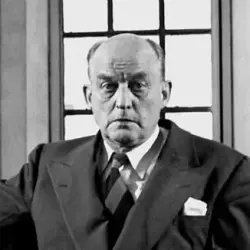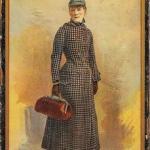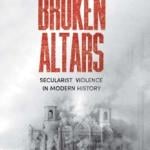An imposing statue of John Locke (1632-1704) looms near the top of the staircase that leads toward the main library at Christ Church, Oxford. For Lockean scholars, such a tribute aptly highlights the life and work of a philosopher responsible for much of modern thought regarding church and state. For the less philosophically inclined, it's a reminder that the patron saint of empiricism now holds sway over the university that was once led by another, less well-known figure whose ideas were entirely different.
Locke's life and work rise above the life and work of the obscure John Owen, who served as Dean of Christ Church and later Vice-Chancellor of the entire university. Although their lives overlapped, their ideas diverged sharply, and seventeenth-century England lived in the contested territory between their very different theological and political trajectories.
Owen sought to apply various texts from the Bible and conjoining theological doctrines rediscovered during the Protestant Reformation to political policies, thereby enabling various events in the life of the nation to be interpreted in the light of Holy Scripture. Preaching before Parliament in 1646 (two years after the civil war began between Parliament and King Charles), Owen was noticed by none other than Oliver Cromwell, who later appointed him his personal chaplain with the responsibility of preaching to the troops.
Owen's political theology stipulated that there were no spheres of influence where the Christian church did not have ultimate jurisdiction. In matters of the magistrate, there was biblical sanction for government only because it possessed a derived authority to execute justice in matters of capital punishment. The national government also played a restraining role and sought to order society forcibly so that other, smaller societies (such as the family) could flourish with little interference from government authorities. The church was to befriend and provide for those in need.
Although Locke is described as "a pious man" by reputable biographers, he stood over against Owen and redefined the path whereby truth was discovered by reorienting (and then eviscerating) the role and purpose of Holy Scripture as a required source for theological and, by association, political understanding. In keeping with his adherence to personal experience as the foundation for truth, he sought to remove the Bible from the center of all discussions surrounding political identity and practice.
Locke's desire was to make Christianity more "reasonable." Authoring a work by that very name—The Reasonableness of Christianity in 1695—and beginning his Second Treatise of Government (1689) with an overt denial of many widely accepted Bible doctrines that served, in his opinion, as barriers to personal freedom, he explicitly argued that the "state all men are naturally in" is one of perfect freedom without need for further help in any way for humankind to learn the proper exercise of that freedom. The goal of nature's law is an abiding state of liberty, but not an "uncontroleable liberty, to dispose of his person or possessions" in ways which harm himself or others. He believed "the state of nature has a law of nature to govern it."
For Locke, this law need not be revealed from a god or deity, but was found in man's own nature by which "he is bound to preserve himself, and not to quit his station willfully, so by the like reason when his own preservation comes not in competition, ought he, as much as he can, to preserve the rest of mankind." Unlike Owen, talk of salvation and a preoccupation with the doctrinal contradictions among various branches of Christianity alarmed Locke to the point that he believed that such disputations were immune to logical reconciliation.
"Toleration" was to be, Locke stated, "the chief characteristic mark of the true church." He understood that Protestants believed personal salvation came by faith alone and Roman Catholics believed that it was received via papal authority in the celebration of the Mass. Facially, these two beliefs could never reach consensus, but they could easily escalate political tensions to the point that military conflicts could become theological tools to compel belief and consolidate power. Toleration, therefore, was the only politically viable option that diffused overt partisanship to the point that theological disagreement could no longer lead to wars over the very foundation of government itself.
It worked. His ideas provided a kind of clearing in the forest of theological entanglements where the American republic could emerge free from the religious conflicts of past centuries even as it established a robust political culture supported by churches and other institutions capable of supplying what government could not accomplish through legislation. Locke's commonwealth of government was to be concerned with broad, general themes derived from what he termed "the law of nature—life, liberty, health, and indolency of body, and the possession of outward things such as money, lands, houses, furniture, and the like."





